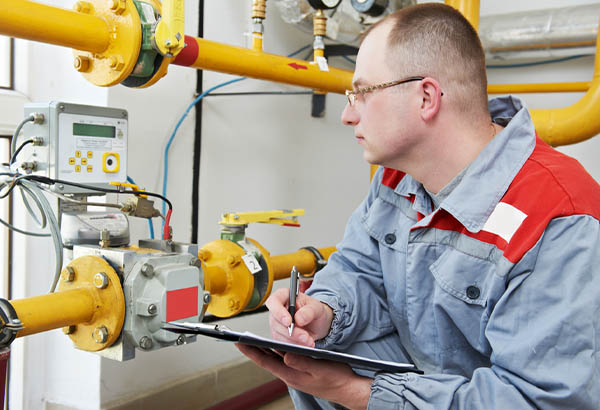
An API Training Course
API 510: Pressure Vessel Inspection Code
(API Exam Preparation Training)
Maintenance, Inspection, Rating, Repair and Alteration
Scheduled Dates
Classroom
| 09 - 13 Feb 2026 | Barcelona - Spain | $5,950 | RESERVE A SEAT |
| 30 Mar - 03 Apr 2026 | Dubai - UAE | $5,950 | RESERVE A SEAT |
| 07 - 11 Sep 2026 | Doha - Qatar | $5,950 | RESERVE A SEAT |
| 19 - 23 Oct 2026 | Dubai - UAE | $5,950 | RESERVE A SEAT |
Online
| 19 - 23 Oct 2026 | Online | $3,950 | RESERVE A SEAT |
Would an alternative date be more suitable?
We offer a variety of tailored training options, customized to meet your organisation's needs. Delivered anytime, anywhere, we make it easy to bring expert training directly to your team.
Why Choose this Training Course?
This PetroKnowledge training course will focus on learning the API 510 Pressure Vessel Inspection Code. The participant will as gain knowledge from API 571, API 572, API 576, API 577, ASME Section V and ASME Section IX, and will further receive instructions on how to take the API exam.
Topics include:
- Head and Shell Calculations
- Hydrostatic Test Pressure Calculations
- Reinforcement Calculations
- Shell internal Pressure Calculations
- Impact Test Requirements and Determination
- Development and Review of Welding Documentation
- NDE Requirements
What are the Goals?
The main aim of this comprehensive training course on API 510: Pressure Vessel Inspection Code (API Exam Preparation Training) is to provide the delegates enough knowledge and skills to pass such exam in order to get the API 510 certification.
The training course will further assist participants to:
- Identify the service restrictions, joint efficiencies and radiography
- Discuss vessels under internal pressures like shell and head calculations
- Recognize maximum allowable working pressure; define hydrostatic head pressure and hydrostatic-pneumatic tests
- Employ post weld heat treatment
- Identify the charpy impact testing
- Carryout material name plates data reports and apply corrosion calculations
Who is this Training Course for?
This training course on API 510: Pressure Vessel Inspection Code (API Exam Preparation Training) is design for professionals who are interested to getting the API 510 certification. It will further benefit:
- Pressure Vessel Inspectors & Engineers
- Plant Inspectors
- Engineering Professionals
- QA/QC inspectors and reliability departments oil and gas (Petrochemical and Refining) operations
- Maintenance Inspection Testing Engineers
- Fabrication Engineers
How will this Training Course be Presented?
This training course on API 510: Pressure Vessel Inspection Code (API Exam Preparation Training) will be conducted along workshop principles with formal lectures, videos and interactive worked examples. Each learning point will be re-enforced with practical exercises and ample opportunities for discussion and sharing of experiences.
Daily Agenda
Day One:
- Introduction and Review of API 510 Body of Knowledge
- UW-3 Welded Joint Category and Service Restrictions
- UW-12 Joint Efficiencies
- UW-51 Radiographic Examination Of Welded Joints
- UW-52 Spot Examinations of Weld Joints
- UG-27 Thickness of Shells Under Internal Pressure
- UG-32 Formed Heads Pressure on the Concave Side
- Example problems calculations
Day Two:
- UG-98 Maximum Allowable Working Pressure
- Hydrostatic Head Pressure
- Hydrostatic, Pneumatic Tests and Test Gauges
- Post weld Heat Treatment
- UW-16 Minimum Requirements for Attachment Welds at Openings
- Brittle Fracture and Charpy Impact Testing Overview
- Example problems calculations
Day Three:
- Impact Testing Exemptions
- UG-84 Charpy Impact Tests Test Specimens
- UG-77 Material Identification Overview
- UG-116 Required Marking and name plate
- Corrosion and Minimum Thickness Evaluation
- API-510 scope Terms, Definitions
- API 510 Types of Inspection and Surveillance
- Inspection During Installation and Service Changes
- Repairs, Alterations, and Rerating of Pressure Vessels
- Damage Mechanisms Affecting Fixed Equipment in the Refining Industry API 571
- Example problems calculations
Day Four:
- ASME IX Welding Procedure Qualifications WPS & WPQ & PQR
- Welding Processes
- Welding Essential &non-essential and supplementary essential Variables
- P- Numbers& S-Numbers$ F-number and A-number
- Welders test positions& Diameter & thickness qualification and position qualification
- Alternate F-Numbers and Alternate P-Numbers
- Welding Inspection and Metallurgy API 577
- Hot Tapping and In-Service Welding
- Example problems calculations
Day Five:
- API 576 Descriptions of Pressure Relieving Devices
- Causes of Improper Performance of Pressure Relieving Devices
- Inspection and Testing of Pressure Relieving Devices
- API 572 Pressure Vessel Inspection
- ASME Section V - Nondestructive Test Methods
- Radiographic & Liquid Penetrant & Magnetic Particle AND Visual Test examination
- Final Practice Exam
Certificate
- On successful completion of this Training Course / Online Training Course, a PetroKnowledge Certificate / E-Certificate will be awarded to the delegates.
